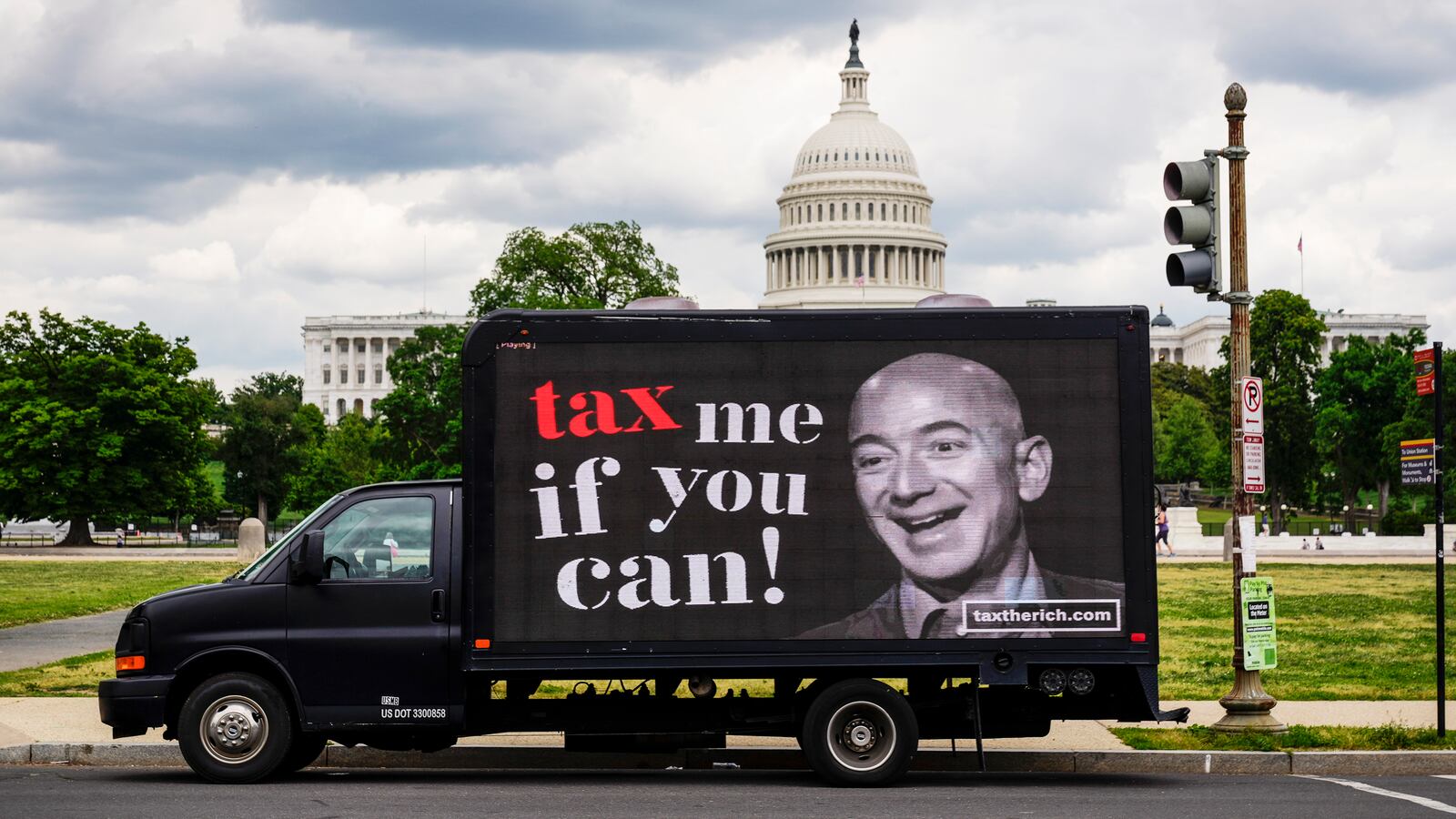It is a moment of consternation for many of America’s ultra-rich. A tax on the super wealthy, once a fringe left-wing fantasy, is again swirling in Washington—and this time the plan originated in the White House.
“It’s dead on arrival, it’s not constitutional, and it doesn’t make any sense,” fumed billionaire Leon Cooperman in an interview with The Daily Beast. “Why don’t they eliminate the fucking loopholes in the tax code?”
The Biden administration was set to unveil the proposal on Monday as part of its budget plan for 2023. It would affect a small percentage of the population—households worth $100 million or more—who would face a minimum annual tax rate of 20 percent of their income, including the appreciation of certain investments.
Under the current system, many billionaires are able to avoid paying meaningful taxes for years or even decades by holding on to liquid assets that are only taxed once sold. Average investors can defer taxes in the same way, but the ultra-rich can fund their lifestyles by borrowing huge sums of money and using their shares as collateral, preventing them from incurring significant tax liabilities.
Many ultra-wealthy investors also utilize loopholes or charitable deductions to further write down their obligations once they come due.
Last year, a ProPublica investigation found that several billionaires, including Jeff Bezos, Elon Musk, and Carl Icahn, had avoided paying federal income taxes in some years.
The report outlined each billionaire’s “true tax rate,” a controversial metric that measured the taxes they had paid between 2014 and 2018 as a percentage of their wealth. Musk’s rate was a relatively high 3.27 percent, while Bezos’ stood at just 0.98 percent.
Democrats have assailed the ultra-rich for years, claiming they haven’t paid their fair share. The new minimum tax proposal is an attempt to address that—or at least create noise to rally the party’s base.
Some billionaires aren’t happy to be caught in the crosshairs. “I think it’s stupid to punish the people that create the jobs and make the money,” said the grocery billionaire John Catsimatidis. “I create jobs. I don’t make most of my money in hedge funds. I don’t make most of my money in the stock market. I’m different.”
“It’s going to lead to very unnatural actions in the economy,” added Cooperman, who said he supports a progressive tax system but favors doing so by closing other loopholes instead.
According to a chart shared on Twitter by the economist Gabriel Zucman, Biden’s proposal could theoretically create a $50 billion tax bill for Elon Musk, the largest of anyone in the country, followed by a $35 billion obligation for Jeff Bezos. In total, the chart estimated, the top 10 billionaires would owe $215 billion between them.
Last fall a similar proposal garnered some support in Congress before it was ultimately scuttled. At that time, Catsimatidis told The Daily Beast that proponents of the plan were “just nuts” and “trying to change our way of life.”
“If they don’t like the United States the way it is, I’m buying them a one-way ticket to Venezuela,” he said.
This time, the grocery billionaire said he is taking a back seat. Many members of the Forbes 400 are both Democrats and richer than him, he said, and will owe far more money if the policy somehow becomes law.
“Let them fight it out,” he said. “Let the hedge fund guys kill each other.”







